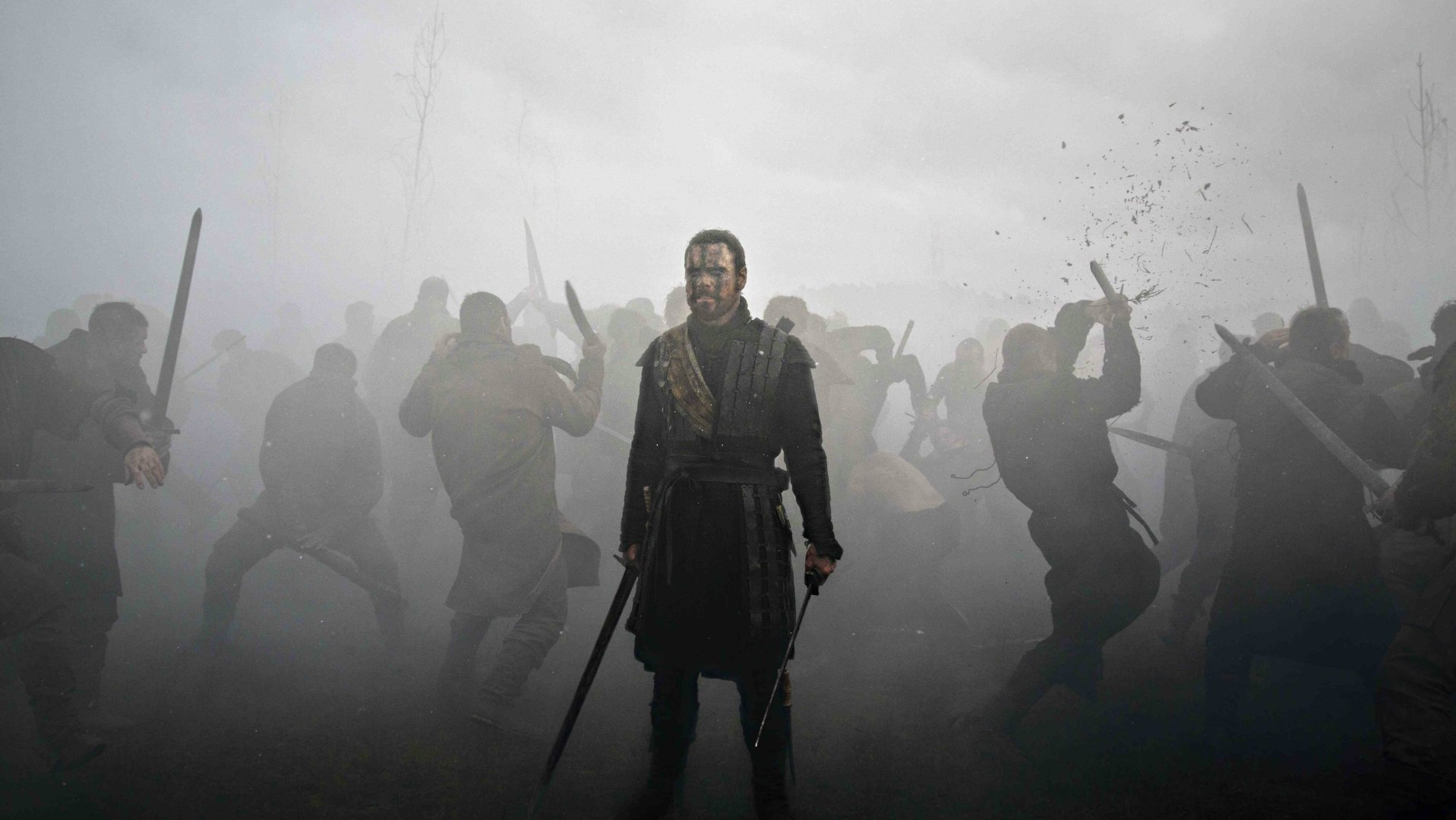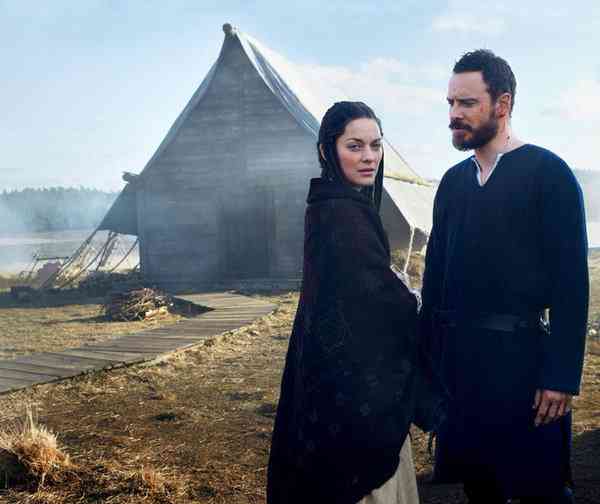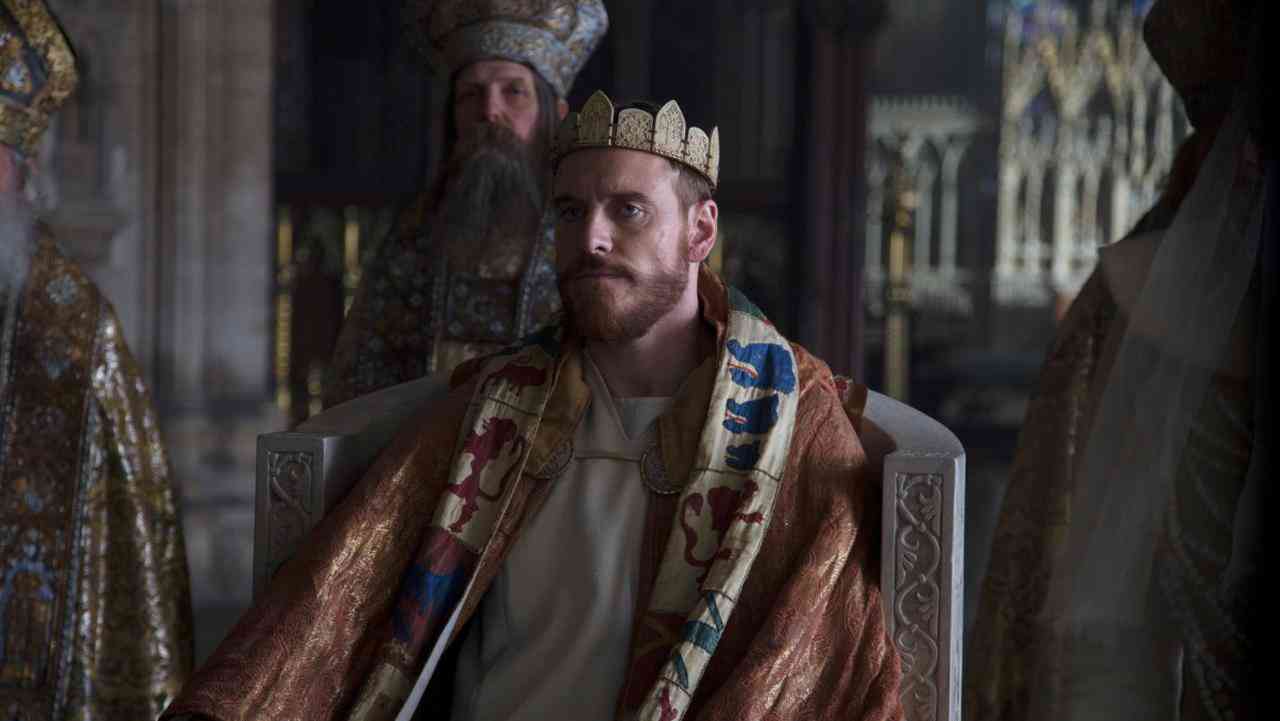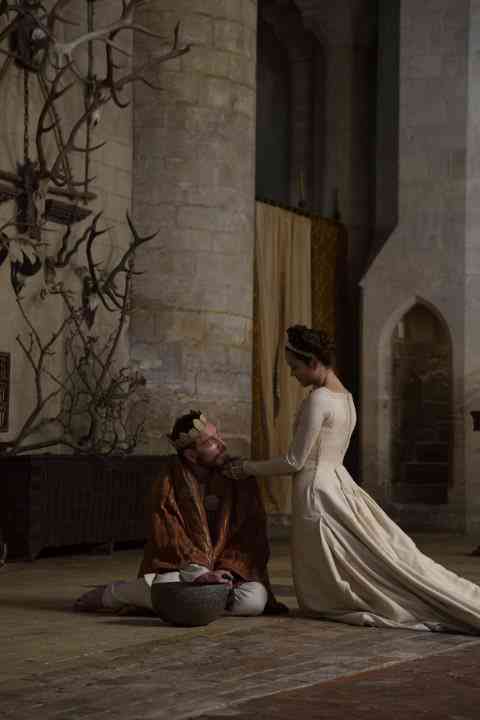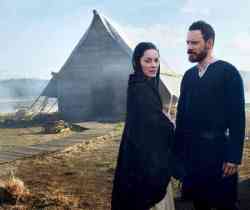 StudioCanal
StudioCanalWith the glut of bloody, brutal films headed our way this December, you might be tempted—even if you enjoy that sort of thing—to skip yet another Macbeth in favor of Hateful Eight or The Revenant.
Don't make that mistake.
Justin Kurzel's searing, indelible adaptation boasts the technical skill of several of its buzzier box office competitors, but also has in spades what the others skimp on: clarity about its moral core and a cogent, relevant point to make about how violence brutalizes the soul. At once ferociously medieval and achingly contemporary, this is the Macbeth our haunted, fearful times require.
As played by Michael Fassbender, the antihero Macbeth is a hollowed-out core of a man, rendered that way by the death of his infant child, whose funeral pyre—flanked by members of the devastated household, including Lady Macbeth (Marion Cotillard)—we witness in a silent scene before the first lines are spoken. Soon we're in battle, shot with the slow lyricism of a dirge or maybe a piercing scream, and we look into the eyes of the soldiers, even boys. Stage productions tend to dwell on the Macbeths' interactions with one another, but here those are punctuation marks, the quietness from which flows more blood.
As shot by Adam Arkapaw (who shot both Top of the Lake and True Detective), this is a film obsessed with eyes. So it's well cast; I think we could watch the whole film unfold just by the shades of change in Fassbender's eyes—emptiness, anger, murderousness, mania, fear, and, ultimately, resignation. Shakespeare's play is tweaked a little, but the structure and language are preserved and familiar, which makes the effect all the more harrowing. I've never seen Macbeth utter his canonical “Tomorrow, and tomorrow, and tomorrow” speech while dragging his dead wife's corpse across the stage, and "screw your courage to the sticking place" is taken rather literally.
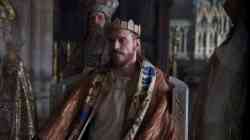 StudioCanal
StudioCanalEverything about this film is dialed up to eleven, in some ways more opera than play, with long, lingering, slow-motion battle scenes and wall-to-wall music. It recalls Mongol, the 2007 film that recounts the early life of Ghengis Khan, shot so you understand the rush and brutality of war and the cold, unyielding reality even royalty faced centuries ago.
Here, all is elemental—water, blood, and fire emerge as the visual motifs—and of course that's significant to another structure that dominates. I don't want to over-Christianize a play that lurks on the messy historical border between a latent cultural paganism and rising Christian influence. But the deep sadness of this film is tied inextricably to those three elemental symbols, which here are for destruction but are also central to Christian worship: baptism, the Eucharist, and Pentecost.
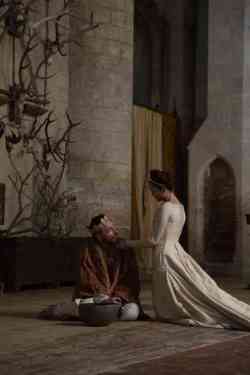 StudioCanal
StudioCanalLest you suspect this is over-extrapolation, it's worth noting that the film gives us our first real encounter with Lady Macbeth as she's praying, in a church structure full of candles and a cut-out crucifix on the wall. She also prays while her husband is murdering Duncan by stabbing him. So there is something obviously important about the mix of the Christian and pagan, here, and what we get is a couple who take the form of worship of the transcendent and bend it toward the immanent, echoed in how Macbeth consults the Weird Sisters. And so the cleansing symbols become the means of their own destruction.
Kurzel makes of Macbeth a medieval dystopia, in which a madman driven that way by an unstoppable sorrow, narcissism, and nihilism turns into a terrorist tyrant. The play has always had at its core a timeless question: what turns good men to evil? The answer this film gives is simple: evil lurks around every corner, prowling for whomever makes space for it. As relevant as ever, Shakespeare's tragedy implores us to remember that leaders who are drunk on power and emotion and, most of all, fear will take apart their subjects and destroy their nations.
Caveat Spectator
This is not your high school play's Macbeth, nor is it sanitized. The violence—both in war and in murder—is unsparing. There are disturbing images, including the Macbeths' dead infant and a family tied to stakes and burned alive. Some soldiers are children. The Weird Sisters are less weird than in other adaptations I've seen, but still uncanny and reaching into a pagan religion. Macbeth and Lady Macbeth have sex several times, while talking to one another; nobody's naked, but it's obvious what they're doing.
Alissa Wilkinson is Christianity Today's chief film critic and an assistant professor of English and humanities at The King's College in New York City. She is co-author, with Robert Joustra, of How to Survive the Apocalypse: Zombies, Cylons, Faith, and Politics at the End of the World (Eerdmans, May 2016). She tweets @alissamarie.

